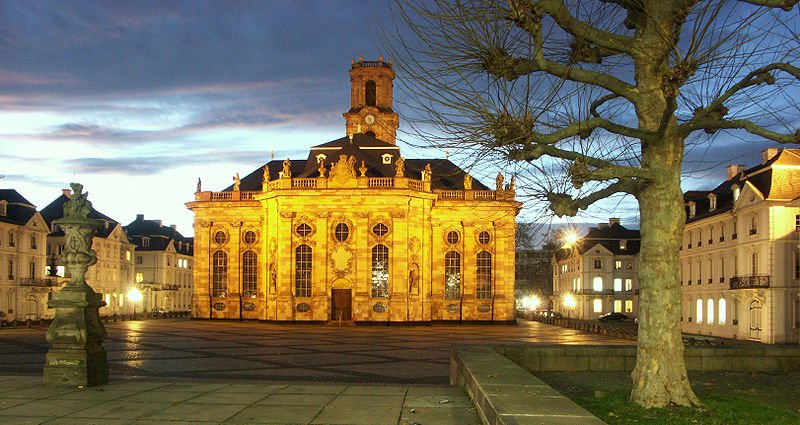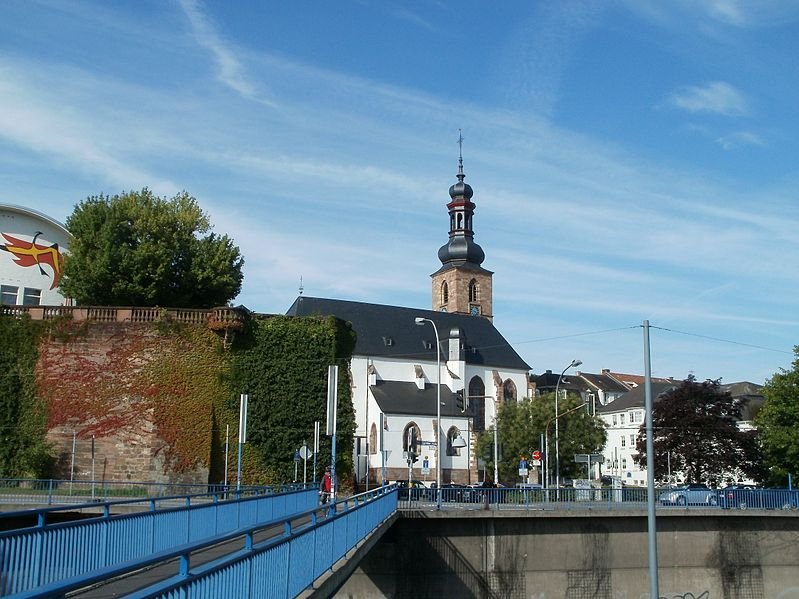 Ludwigskirche in Saarbrücken, Saarland, Germany
Ludwigskirche in Saarbrücken, Saarland, GermanySource: https://commons.wikimedia.org/wiki/File:Ludwigskirche_abends_V2.jpg
Author: Rüdiger

Saarbrücken (French: Sarrebruck, Luxembourgish: Saarbrécken) is the capital and biggest city in the state of Saarland, on the central western part of Germany. The city covers 167 sq2 km (65 sq mi) and has a population of 176,000 people (2012 estimate). The Saarbrücken metropolitan area extends to Dillingen to the west and Neunkirchen to the northeast.
The Saarbrücken area, or simply called the Saar area, has been inhabited since prehistoric times. It was made part of the Roman Empire in the 1st century BC. There was a Gallo-Roman settlement here until the 5th century AD. After the fall of the Roman Empire, it was under the rule of the Franks, and in 925 became part of the Holy Roman Empire.
Saarbrücken suffered heavy bombing during the Second World War, after which it became part of the French Zone of Occupation. In 1947, France attempted to annex it by created the Saar protectorate. However Saarlanders rejected merger with France, and in 1957, Saarland became part of the Federal Republic of Germany.
 View of the Schlosskirche from the Alte Brücke
View of the Schlosskirche from the Alte BrückeSource: https://commons.wikimedia.org/wiki/File:20110810Alte_Bruecke_Saarbrucken2.jpg
Author: AnRo0002

How to go to Saarbrücken
Saarbrücken is connected to Frankfurt and Paris by the high-speed ICE train.Places of Interest in Saarbrücken
- Alte Brücke
- Basilika St Johann
- Ludwigskirche
- Museum am Schlossplatz
- Schlosskirche
 Latest updates on Penang Travel Tips
Latest updates on Penang Travel Tips

Copyright © 2003-2025 Timothy Tye. All Rights Reserved.

 Go Back
Go Back